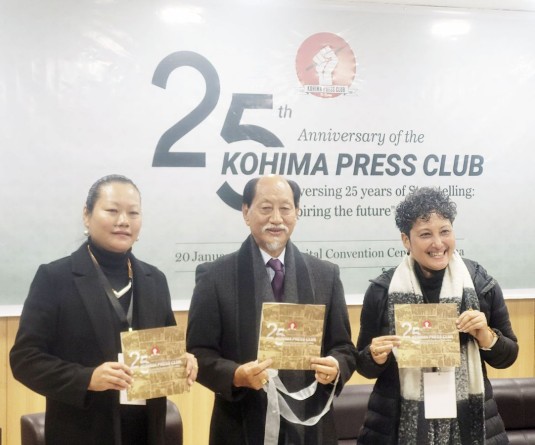
KOHIMA, MAY 9 (MExN): In a move aimed at streamlining the registration of births and deaths across the country, the Ministry of Home Affairs, Government of India, has announced the enactment of the Registration of Births and Deaths (Amendment) Act, 2023. The amendment, published in the Gazette of India on August 11, 2023, officially came into force nationwide on October 1, 2023.
A DIPR report informed that the amended act introduces several key provisions aimed at modernizing and enhancing the registration process, ensuring accuracy, efficiency, and accessibility for citizens.
Birth certificate will now stand as the sole document for proving the date and place of birth for individuals born on or after October 1, 2023, for various official purposes.
In cases of delayed registration of births or deaths, the authority responsible for ordering registration has been revised from 'Magistrate of first class or Presidency Magistrate' to 'District Magistrate or Sub-Divisional Magistrate or an Executive Magistrate authorized by the District Magistrate.'
Additionally, submission of a self-attested document is now required instead of an affidavit before a Notary Public.
All medical institutions, irrespective of ownership, are mandated to provide a certificate stating the cause of death to the Registrar and furnish a copy to the nearest relative.
Following registration completion, Registrars are required to provide certificates of birth or death registration to informants within seven days, either electronically or through other means.
The Registrar General of India and Chief Registrar of States are tasked with maintaining a database of registered births and deaths at the national and state levels, respectively. These databases may be made accessible, upon request and with prior approval from the Central Government and State Government, to authorities dealing with other databases.
The amendment includes provisions for the appointment of Special 'Sub-Registrars' in the event of disasters or epidemics to expedite death registrations and certificate issuance. Additionally, legal provisions have been enabled to facilitate the registration process for adopted, orphaned, abandoned, surrogate, and children of single parents or unwed mothers.
A grievance redressal mechanism has also been introduced for the general public aggrieved by any action or order of the Registrar or District Registrar, along with enhancements of penalties.





